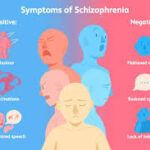Date: September 3, 2024
Location: France
A new study has shed light on the psychological challenges faced by first-time fathers, revealing a significant risk of mental health issues, particularly in the period surrounding the birth of their first child. The study, conducted by French researchers in epidemiology and public health, highlights the need for greater awareness and targeted interventions to support men’s mental health during this crucial life stage.
Rising Concerns for Paternal Mental Health
While maternal mental health has long been a focus of research, paternal mental health—especially in the perinatal period—has received far less attention. This new research aims to bridge that gap by exploring the mental health trajectories of new fathers over a nine-year period, utilizing data from the CONSTANCES cohort, a large, ongoing population-based study in France.
The study included 6,299 men who had their first child and for whom mental health data were available during the follow-up period. The average age of these men was 38 years at the start of the study, with the majority living with a partner (88%) and employed (85%).
Key Findings: Depression, Anxiety, and Underreporting
The findings revealed that 7.9% of the participants reported experiencing a mental illness during the study period. Notably, 5.6% of these illnesses were reported before the birth of the child, while 9.7% occurred afterward. Anxiety was a particularly common issue, affecting 6.5% of the cohort, with a marked increase in cases after the birth (7.8% post-birth compared to 4.9% pre-birth).
The study also uncovered a significant discrepancy between self-reported mental health diagnoses and the actual symptom-related scores. Clinically significant symptoms, including depression and anxiety, were present in 23.2% of the men during the study, with rates rising from 18.3% to 25.2% after the birth of the first child. This discrepancy suggests that many new fathers may be underreporting their mental health challenges or lack awareness of their symptoms.
Three Mental Health Trajectories Identified
Using latent class analysis, the researchers identified three distinct mental health trajectories among the fathers:
- Low and Constant Risk (90.3% of the cohort): Most men in the study maintained a consistently low risk of mental illness throughout the study period.
- High and Constant Risk (4.1%): A smaller group faced a consistently high risk of mental health issues over time.
- Transiently High Risk (5.6%): This group experienced a temporary spike in mental health risk during the 2-4 years surrounding the birth of their child.
Risk Factors for Mental Health Challenges
The study identified several risk factors associated with increased mental health risks in new fathers. For those at a transiently high risk, the most significant factors were:
- Unemployment
- Negative childhood experiences
- Financial barriers to healthcare
- Being aged 35-39 years
For those with a high and constant risk, the significant factors included:
- Age 60 years or older
- Unemployment
- Not living with a partner
- Age 40-44 years
- Having additional children in subsequent years
Implications and the Need for Support
The authors of the study emphasized that while these risk factors do not establish causality, they highlight the need for further research and targeted public health interventions. French fathers, who typically receive only two weeks of paid paternity leave, may find it challenging to balance their professional responsibilities and parenting duties, leading to dissatisfaction and difficulties in seeking support or a mental health diagnosis.
The study underscores the importance of recognizing the mental health needs of new fathers and the need for more robust support systems to help them navigate the challenges of fatherhood. As awareness grows, it is hoped that more men will feel empowered to seek the help they need during this critical period in their lives.












